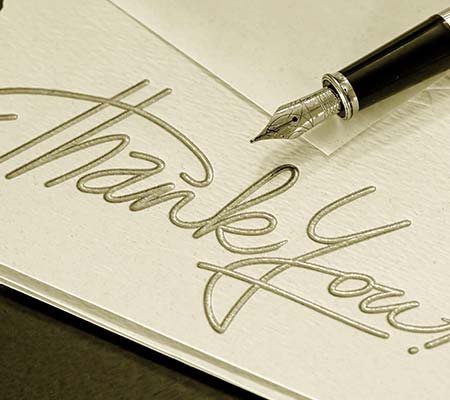-
-
Research The Company
 The number one hurdle where candidates fail is not knowing the company and industry which they are interviewing for. Research the company and its competitors. Check recent news alerts and social media sites. Try to understand not just where the company is currently, but where it is going and what are its strengths and weaknesses. Also, read reviews on the company and get an idea for company culture and interview tips.
The number one hurdle where candidates fail is not knowing the company and industry which they are interviewing for. Research the company and its competitors. Check recent news alerts and social media sites. Try to understand not just where the company is currently, but where it is going and what are its strengths and weaknesses. Also, read reviews on the company and get an idea for company culture and interview tips. -
Look The Part
 First impressions make a huge difference and contribute to your strengths. Always dress appropriately for a job interview and arrive early. Regardless of gender, it's hard to go wrong with a suit. Wear something to give you an edge in which you feel your most confident.
First impressions make a huge difference and contribute to your strengths. Always dress appropriately for a job interview and arrive early. Regardless of gender, it's hard to go wrong with a suit. Wear something to give you an edge in which you feel your most confident. -
Know Your Pitch
 An interview is selling yourself and proving to the interviewer that you are, indeed, the best candidate. Practice your main talking points. Know your resume inside and out as well as your strengths and limitations. Prepare the story of your career to this point, where you have succeeded and failed, and what you have learned from experience. Often times, a candidate controls the conversation at the beginning and end of an interview. Know how you are going to spin small talk into why you are excited about the company, your strengths, and what you can offer. When the interview concludes, rehash this adding elements that you have learned from the interview process.
An interview is selling yourself and proving to the interviewer that you are, indeed, the best candidate. Practice your main talking points. Know your resume inside and out as well as your strengths and limitations. Prepare the story of your career to this point, where you have succeeded and failed, and what you have learned from experience. Often times, a candidate controls the conversation at the beginning and end of an interview. Know how you are going to spin small talk into why you are excited about the company, your strengths, and what you can offer. When the interview concludes, rehash this adding elements that you have learned from the interview process. -
Phone Interview Tips
 A phone interview should not be seen as a significant hurdle, but instead as an opportunity to prepare more for the in- person interview. One of the most important phone interview tips is to just remain flexible and prepared. Phone interviews may come with little to no warning. Remember to ask a lot of questions about the company, team, their challenges, and interview processes. Note these and bring them up as questions in the in-person interview.
A phone interview should not be seen as a significant hurdle, but instead as an opportunity to prepare more for the in- person interview. One of the most important phone interview tips is to just remain flexible and prepared. Phone interviews may come with little to no warning. Remember to ask a lot of questions about the company, team, their challenges, and interview processes. Note these and bring them up as questions in the in-person interview. -
Let The Interview Guide You
 Make sure you are well prepared. The bulk of the interview is spent by the interviewer testing the thesis that you started with. Relax, and Listen. Let the interviewer tell you what they are looking for. Often they will question specific skill sets to your experience. Make sure to hammer these home even later in the interview. Make notes of these points, and finish with your summary and conclusion.
Make sure you are well prepared. The bulk of the interview is spent by the interviewer testing the thesis that you started with. Relax, and Listen. Let the interviewer tell you what they are looking for. Often they will question specific skill sets to your experience. Make sure to hammer these home even later in the interview. Make notes of these points, and finish with your summary and conclusion. -
Post-interview tips
 Remember that taking the time to say thank you is not only good etiquette, but reminds the interviewer of your strengths and desires as well as address any objections. Remember to include any specific conversation that was discussed where you could make an immediate impact t the organization. Write a letter or card and overnight it to their offices or a formally written email and do remember to spell and grammar check.
Remember that taking the time to say thank you is not only good etiquette, but reminds the interviewer of your strengths and desires as well as address any objections. Remember to include any specific conversation that was discussed where you could make an immediate impact t the organization. Write a letter or card and overnight it to their offices or a formally written email and do remember to spell and grammar check.
-

 The number one hurdle where candidates fail is not knowing the company and industry which they are interviewing for. Research the company and its competitors. Check recent news alerts and social media sites. Try to understand not just where the company is currently, but where it is going and what are its strengths and weaknesses. Also, read reviews on the company and get an idea for company culture and interview tips.
The number one hurdle where candidates fail is not knowing the company and industry which they are interviewing for. Research the company and its competitors. Check recent news alerts and social media sites. Try to understand not just where the company is currently, but where it is going and what are its strengths and weaknesses. Also, read reviews on the company and get an idea for company culture and interview tips. First impressions make a huge difference and contribute to your strengths. Always dress appropriately for a job interview and arrive early. Regardless of gender, it's hard to go wrong with a suit. Wear something to give you an edge in which you feel your most confident.
First impressions make a huge difference and contribute to your strengths. Always dress appropriately for a job interview and arrive early. Regardless of gender, it's hard to go wrong with a suit. Wear something to give you an edge in which you feel your most confident. An interview is selling yourself and proving to the interviewer that you are, indeed, the best candidate. Practice your main talking points. Know your resume inside and out as well as your strengths and limitations. Prepare the story of your career to this point, where you have succeeded and failed, and what you have learned from experience. Often times, a candidate controls the conversation at the beginning and end of an interview. Know how you are going to spin small talk into why you are excited about the company, your strengths, and what you can offer. When the interview concludes, rehash this adding elements that you have learned from the interview process.
An interview is selling yourself and proving to the interviewer that you are, indeed, the best candidate. Practice your main talking points. Know your resume inside and out as well as your strengths and limitations. Prepare the story of your career to this point, where you have succeeded and failed, and what you have learned from experience. Often times, a candidate controls the conversation at the beginning and end of an interview. Know how you are going to spin small talk into why you are excited about the company, your strengths, and what you can offer. When the interview concludes, rehash this adding elements that you have learned from the interview process. A phone interview should not be seen as a significant hurdle, but instead as an opportunity to prepare more for the in- person interview. One of the most important phone interview tips is to just remain flexible and prepared. Phone interviews may come with little to no warning. Remember to ask a lot of questions about the company, team, their challenges, and interview processes. Note these and bring them up as questions in the in-person interview.
A phone interview should not be seen as a significant hurdle, but instead as an opportunity to prepare more for the in- person interview. One of the most important phone interview tips is to just remain flexible and prepared. Phone interviews may come with little to no warning. Remember to ask a lot of questions about the company, team, their challenges, and interview processes. Note these and bring them up as questions in the in-person interview. Make sure you are well prepared. The bulk of the interview is spent by the interviewer testing the thesis that you started with. Relax, and Listen. Let the interviewer tell you what they are looking for. Often they will question specific skill sets to your experience. Make sure to hammer these home even later in the interview. Make notes of these points, and finish with your summary and conclusion.
Make sure you are well prepared. The bulk of the interview is spent by the interviewer testing the thesis that you started with. Relax, and Listen. Let the interviewer tell you what they are looking for. Often they will question specific skill sets to your experience. Make sure to hammer these home even later in the interview. Make notes of these points, and finish with your summary and conclusion. Remember that taking the time to say thank you is not only good etiquette, but reminds the interviewer of your strengths and desires as well as address any objections. Remember to include any specific conversation that was discussed where you could make an immediate impact t the organization. Write a letter or card and overnight it to their offices or a formally written email and do remember to spell and grammar check.
Remember that taking the time to say thank you is not only good etiquette, but reminds the interviewer of your strengths and desires as well as address any objections. Remember to include any specific conversation that was discussed where you could make an immediate impact t the organization. Write a letter or card and overnight it to their offices or a formally written email and do remember to spell and grammar check.